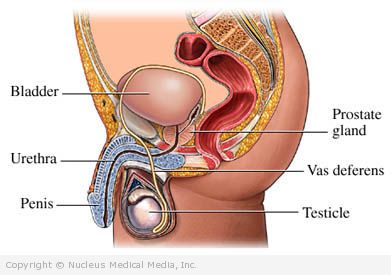Chlamydia – Definition
Chlamydia is a bacterial infection. It is a sexually transmitted infection (STI). In fact, it is one of the most common STIs in the United States. It is most common among sexually active teens and young adults.
Chlamydia – Causes
This infection is caused by bacteria known as Chlamydia trachomatis. It is passed from an infected partner during sex. This can happen during oral, vaginal, or anal sex.
Chlamydia – Risk Factors
Factors that increase your chance of chlamydia include:
- Being sexually active and 15-25 years old
- Multiple sex partners
- Having sex without a condom
- History of sexually transmitted infections
Chlamydia – Symptoms
It is common to have this infection and have no symptoms. Many people do not know they are infected. If symptoms do occur, they may appear within 1-3 weeks of exposure. The symptoms can be very similar to another STI, gonorrhea.
Symptoms of a genital infection include:
In Men:
- White or clear discharge from the penis
- Painful sensation while urinating
In Women:
- Increased or abnormal vaginal discharge
- Painful urination
- Unusual vaginal bleeding
- Pain or bleeding during or after sex
- Abdominal pain
Pregnant women can also pass chlamydia to their newborns. This can happen during birth. It may cause eye problems like conjunctivitis or pneumonia in the baby. Identification and treatment during pregnancy can greatly reduce risk to the baby.
Chlamydia – Diagnosis
Your doctor will look for the specific bacteria. A swab test may be done with the discharge of the penis or the cervix. A urine sample may also be used. Tests can also be performed to check for chlamydia infection in the throat or anus if relevant.
You may also be tested for others STIs, including gonorrhea, syphilis, and HIV.
Chlamydia – Treatment
This infection is treated with antibiotics. The most commonly prescribed antibiotics are:
- Azithromycin (eg, Zithromax, Zmax)
- Doxycycline (eg, Vibramycin and others)
To ensure successful treatment:
- It is important that you and your partner both be treated and wait at least 7 days before you have sex again.
- Take all of the medicine as directed.
- If you still have symptoms after the medicine is finished or if you are pregnant, you may need to be tested again.
- You may be tested again 3 months after treatment to make sure you have not been reinfected.
Untreated chlamydia genital infections can have serious results:
In Men:
Untreated infections may cause problems with:
- Testicles — swelling of the testicles that may lead to infertility
- Urethra — tube that carries urine out of the body can become scarred making it difficult to urinate
- Prostate — swelling of the prostate gland
- Joints and eyes — joint pain which is just one symptom in a collection of conditions, called Reiter’s syndrome, which also includes urethritis, arthritis, and conjunctivitis (pink eye).
In Women:
Untreated infections may cause:
- Pelvic inflammatory disease (PID) — may increase the risk of infertility or a tubal pregnancy
- Infection that spreads into the abdominal cavity
If you are diagnosed with chlamydia, follow your doctor’s instructions.
Chlamydia – Prevention
The safest action is to abstain from sex. If you are sexually active, you can help prevent chlamydia with the following habits :
- Always use a latex condom during sexual activity. Other contraceptive tools may offer some protection. The condom is the most reliable of them all.
- Have routine check-ups often for STIs if you are under the age of 25 years or have other risk factors for getting STIs.
- Have a monogamous relationship (only one sexual partner).
If you already have chlamydia, prevent spreading the infection with the following steps:
- Make sure that all sexual partners are tested and treated.
- Refrain from sexual activity until at least 7 days after your infection is treated.

